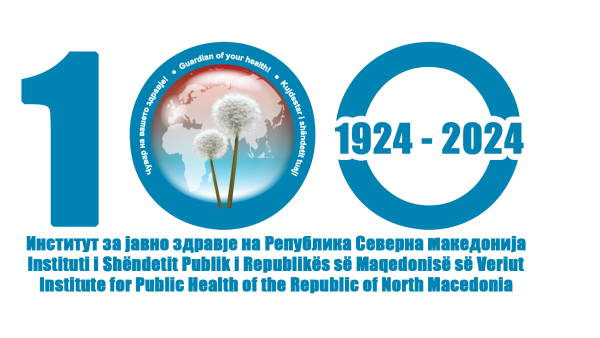Epidemiological activity in the Republic of North Macedonia is carried out on the basis of the Law on Public Health, the Law on Health Protection, the Law on the Protection of the Population from Infectious Diseases, by-laws from this area as well as on the basis of the annual programs adopted by the Government of the Republic of North Macedonia.
According to the mentioned legislation, the recommendations of the global policy “Health for all” and the policy “21 goals for the 21st century” and further evaluation of the National Annual Program for Public Health in the Republic of North Macedonia, in the future period it is necessary to significantly reduce the negative effects of certain infectious diseases on the population health and to ensure control, elimination and eradication of those infectious diseases. In the context of the commitments of the Republic of North Macedonia for integration into the European Union, in the future period the epidemiological activity will continue with its activities aimed at harmonizing with the legal regulations of the European Community.
Priority goals from the field of epidemiology are:
- Maintenance of the results achieved by the eradication of polio;
- Elimination of indigenous smallpox and rubella and prevention of congenital rubella infection (CRI);
- Continued, enhanced monitoring of mandatory immunization of all girls aged 12 against HPV infection;
- Control of other diseases against which mandatory immunization is carried out;
- Reduction of high morbidity from enterocolitis in young children, from viral hepatitis A, salmonellosis and other intestinal infectious diseases;
- Reduction of morbidity from other viral hepatitis B and C for the prevention of hepatocellular carcinoma;
- Reducing the risk of introducing and spreading malaria and other vector-borne diseases (West Nile fever, dengue);
- Reducing the risk of introducing and spreading cholera and other tropical and quarantine diseases;
- Reducing the incidence of brucellosis and other zoonosis, preventing their epidemic occurrence;
- Prevention of naturally focal infections;
- Prevention of HIV/AIDS and other sexually transmitted infections;
- Prevention and suppression of intrahospital infections;
- Monitoring and surveillance of influenza and influenza-like illnesses as well as other acute respiratory illnesses;
- Prevention and suppression of infectious diseases of greater epidemiological and social importance such as emergence of cases of new infectious diseases, reoccurring diseases and outbreaks of infectious diseases.

.jpg)
.jpg)
.jpg)
.jpg)
.jpg)
.jpg)
.jpg)
.jpg)
.jpg)
.jpg)
.jpg)
.jpg)
.jpg)
.jpg)
.jpg)
.jpg)